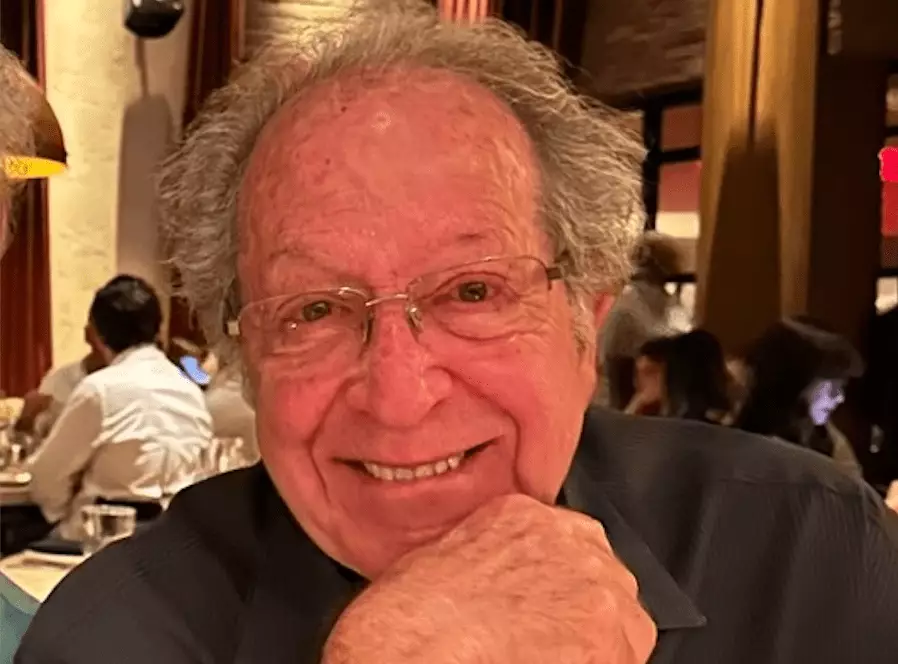David Steinberg’s journey through the world of entertainment reveals a man who was more than just a manager or producer; he was a guardian of comedic brilliance. Beginning his career in public relations, representing icons like Sammy Davis Jr., Peter Sellers, and James Coburn, Steinberg demonstrated an innate talent for understanding what made performers tick. His transition into management was not merely a career move—it was a transformation that allowed him to craft a legacy rooted in cultivating talent and elevating comedy as an art form. Unlike many who enter the industry for fame or fortune, Steinberg appeared driven by a genuine passion for uncovering and nurturing remarkable comedic voices.
What makes Steinberg’s life truly inspiring is how he seemingly dedicated himself to preserving the integrity and authenticity of the comedians he worked with. His work extended beyond mere representation; he became an architect of their artistic success, investing himself deeply in their creative pursuits and personal growth. His strategic planning, insightful mentorship, and unyielding support helped launch and maintain some of the most influential careers in comedy. From Robin Williams’ poignant storytelling to Billy Crystal’s charismatic leadership, Steinberg knew that comedy wasn’t just entertainment—it was a vehicle for human connection, reflection, and often, social commentary.
Imprint on Comedy and Legacy of Creative Excellence
Steinberg’s influence permeated across multiple platforms, most notably through his role in producing and scripting the televised moments that defined comedy’s evolution. His work on eight Oscar telecasts, all hosted by Billy Crystal, exemplifies his mastery of blending humor with cultural significance. This is not mere trivia but a testament to his ability to craft content that resonated with millions, elevating awards shows from mundane ceremonies to cultural conversations. His contributions underscored an understanding that comedy must be both accessible and meaningful—a principle he adhered to throughout his career.
The breadth of his work in television specials further illuminates his remarkable talent. He executive produced numerous iconic comedy specials featuring Robin Williams, Billy Crystal, Martin Short, and other luminaries. These productions weren’t simply broadcasts—they were carefully curated moments of comedy history, capturing the essence of each performer’s unique voice. Steinberg’s role as both a creative steward and strategic organizer resulted in projects that stand as benchmarks for quality in comedy programming. His influence extended beyond individual specials; he pioneered initiatives like HBO’s Young Comedians specials and a daring series called Women of the Night, which showcased diverse voices in comedy.
The Human Side of a Comedy Giant and Enduring Influence
Beyond his professional achievements, Steinberg’s personal relationships reveal a man who was deeply loved and respected. His close partnership with Billy Crystal exemplifies a friendship based on mutual respect, trust, and shared artistic ambitions. Crystal’s heartfelt tribute, describing Steinberg as “hilarious, outrageous, sensitive, and a friend,” encapsulates the warmth and authenticity Steinberg brought into his relationships. It’s rare in Hollywood to find a figure who balances sharp wit with genuine kindness—yet, Steinberg did so effortlessly. His influence extended into the cultural fabric of comedy, inspiring a new generation of performers and industry professionals who learned from his dedication to craft and integrity.
Even after Robin Williams’ untimely passing in 2014, Steinberg continued to champion his friend’s legacy, highlighting his unwavering commitment to the art form and his clients. His involvement in Robin Williams: Come Inside My Mind demonstrates how he viewed his role beyond management—seeing himself as a custodian of artistic memory and cultural impact. His involvement in projects like this signifies a man who understood that comedy is more than just laughs; it’s a reflection of human experience, and preserving that reflection is a responsibility he cherished deeply.
In the end, Steinberg’s life was a testament to the transformative power of comedy—an art form capable of healing, challenging, and uniting us. His legacy is not simply in the productions he helmed but in the enduring spirit of integrity and innovation he instilled within the industry. Critics might scrutinize the industry’s often superficial veneer, but Steinberg’s career reminds us that genuine artistry is built on dedication, heart, and an unwavering belief in the power of laughter. His departure leaves a void, yet his influence remains an indelible part of comedy’s ongoing story—an enduring reminder that to truly elevate a craft, one must invest not just in talent, but in the soul of the art itself.
